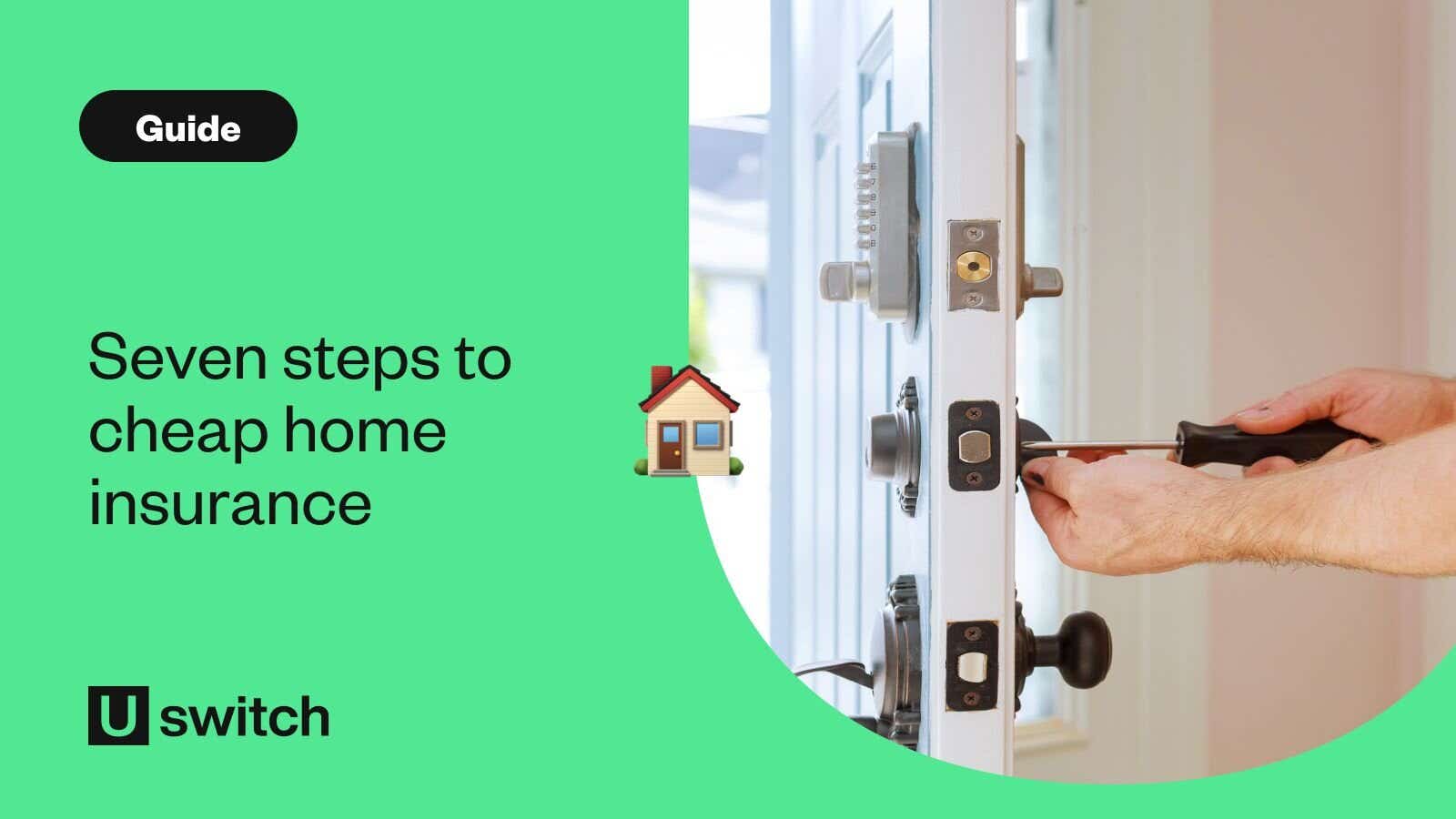Seven steps to cheap home insurance


1. Only make necessary home insurance claims
Making a claim on your home insurance can increase how much you pay. If the cost of the repairs or replacements is close to or below your excess, consider covering them yourself to protect your no-claims discount. This will help you to keep your home insurance costs lower over time.
2. Make your home secure
Improving your home's security can reduce the risk of theft and potentially lower your insurance premiums. Installing approved door locks and burglar alarms and joining a Neighbourhood Watch scheme are all ways that you can up the security of your home. Some insurers offer discounts for these types of security enhancements.
3. Fit and test smoke alarms
Smoke alarms are essential for your safety and can also lead to insurance discounts. Ensure you have working smoke detectors on each floor and test them regularly.
4. Shop around for the cheapest quote
Don't settle for the first quote you get. By comparing quotes and policies, you can explore various options and find the most affordable policy that meets your needs. Remember to check for any available discounts or bundled offers, for example, buying a combined policy often works out cheaper than buying separate contents and buildings insurance policies. You can learn more about how much home insurance you need to ensure you’re not over- or under-insuring.
5. Increase the policy excess
Opting for a higher voluntary excess can lower what you pay overall. But you need to ensure that the excess amount is affordable in case you need to make a claim.
6. Don’t leave your home unoccupied
Leaving your home unoccupied for extended periods can increase the risk of damage or theft, potentially affecting your insurance coverage. If you plan to be away for long periods, inform your insurer and take necessary precautions to secure your property. If you're away for longer than around 30 days at a time, you may not be covered under a standard policy. In these cases, consider unoccupied or non-standard home insurance.
7. Ensure you have the right cover for your home
Assess your home's value and contents accurately to avoid over-insuring or under-insuring. Consider whether you need buildings insurance, contents insurance, or a combined policy based on your circumstances.
Compare home insurance quotes
See a range of home insurance quotes in just a few minutes when you compare with Uswitch
FAQs
Should I auto-renew my home insurance policy?
Auto-renewing your home insurance policy might seem convenient, but it may not always offer the best value. Premiums can increase upon renewal, so it's worth comparing quotes each year to ensure you're getting the most affordable cover. Learn more about how home insurance renewal works and how to stay on top of your policy.
What should I consider when moving to reduce home insurance costs?
When moving, consider the property's location and security features, as these factors can influence insurance premiums. Updating your insurer with accurate information about your new home can help in getting the most suitable and cost-effective policy.
Should I pay for my home insurance annually or monthly?
Paying your home insurance premium annually or monthly can affect the overall cost. Paying your home insurance premium annually is typically more cost-effective than monthly payments, which may include additional fees or interest. If you can afford to pay the annual premium upfront, it can lead to overall savings.
Do I need to take out buildings and contents insurance?
If you own your home, buildings insurance can help to cover structural damages, and contents insurance protects your belongings. Renters typically need only contents insurance, as the landlord's policy should cover the building.